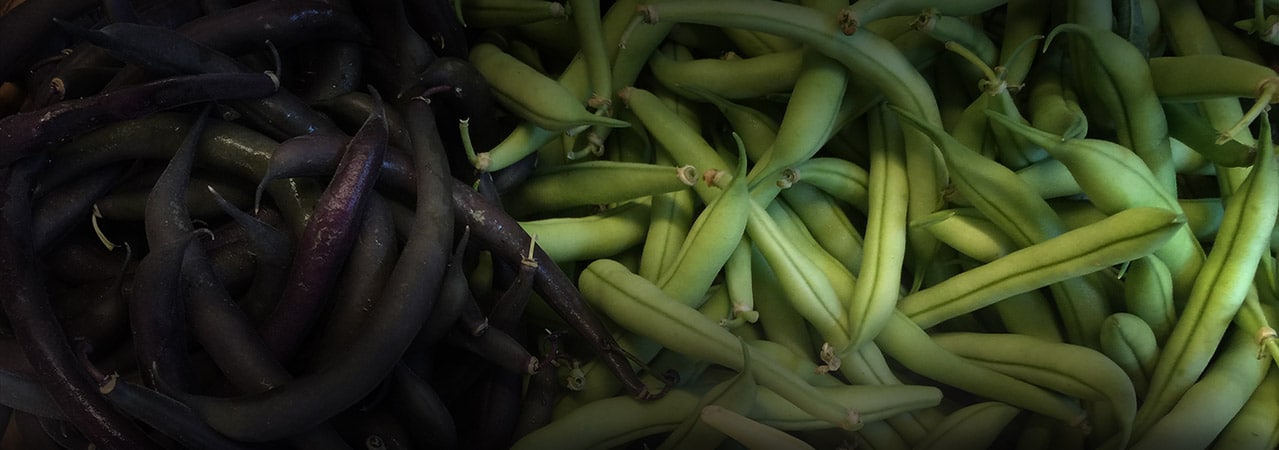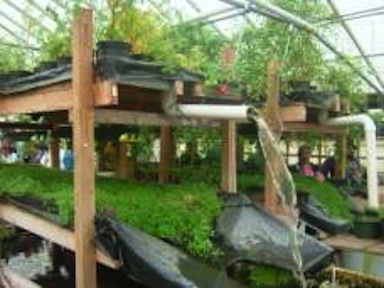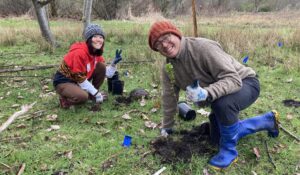
Aquaponics in Milwaukee and Maple Valley
Aquaponics in Milwaukee and Maple Valley
- posted on: July 29, 2013
- posted by: 21 Acres
"*" indicates required fields

Perch is not just for eating! And if you ever visited the shores of Lake Michigan, you’d understand my surprise. I recently returned from a visit to my hometown and nearby Milwaukee, and along with snacking on cheese curds and enjoying a brandy old-fashioned with friends, a Friday night fish fry featuring fresh caught perch is always at the top of my ‘to do’ list. Farming and agriculture has been a big part of my life the last few years with my involvement at 21 Acres, so added to my list this visit was Will Allen’s Growing Power headquarters. Since it was just a ‘hop, skip and a jump’ from my BFF’s house, I had to visit.
André was a great tour guide; we shared ideas and similar passions about farming, food security and sustainable agriculture. I had never had the opportunity however, to see an aquaponic system in action. According to André, “aquaponics is the method of growing crops and fish together in a re-circulating system.” Thus, my surprise seeing the thousands of perch being raised in the many water tanks and raised beds in these vertical farms. Thousands upon thousands of perch. Lake Michigan’s perch numbers have decreased 80 percent since 1990 due to state regulations so, it’s great to know their numbers have increased due to Growing Power’s efforts. And yes, my perch dinner prepared by Chef Steve at our neighborhood restaurant on Friday evening was as great as I remembered!
Want to learn more about aquaponics? Click here: http://www.growingpower.org/aquaponics.htm
Click here for more info on Growing Power: http://www.growingpower.org/our_history.htm
The 21 Acres team explores a variety of farms and operations throughout the year. Coming up is a field trip to Westover Farm in Maple Valley, WA. Westover boasts a hydroponic greenhouse where they grow, among many vegetables, tomatoes . . . about 10,000 lbs of them! Farmer Darrell practices sustainable techniques including the use of biocontrol methods like predatory insects and no pesticides. We’ll fill you in later after our visit!
— Brenda











 back to blog overview
back to blog overview









